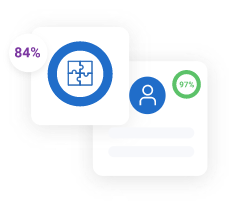- Application
- Information
Apply through Brive
We are official partners! Complete your application for free and earn benefits!
Free review on your application |
1:1 counselling by certified consultants |
Higher acceptance rate on your top choices |
Duration
4 Years
Language
English
Program Description
The bachelor in Computer Science (BSc) aims to provide students with a solid foundation in the field of computer science and prepare them to become effective computer professionals.
The bachelor in Computer Science (BSc) is based on both theory and practice with emphasis given to the concepts and techniques necessary for the design and development of advanced computer systems. Upon graduation, the student is ready for an entry-level position in the industry and for graduate studies.
The bachelor in Computer Science (BSc) is based on both theory and practice with emphasis given to the concepts and techniques necessary for the design and development of advanced computer systems. Upon graduation, the student is ready for an entry-level position in the industry and for graduate studies.
Entry Requirements

Are you eligible to apply?
Sign up, check the entry requirements, and find out your compatibility with the program.
Aims of the Program
- To enhance students’ critical thinking and to develop their basic analytical, problem-solving and decision-making skills.
- To introduce the field of computer science, and principles of computers, computation and programming.
- To acquaint students with the major commercial applications of computing and the computing techniques pertinent to them.
- To introduce students to programming concepts and methodologies for program design, development, testing and documentation.
- To introduce techniques for systematic problem analysis, program specification, design, coding, testing, debugging and documentation of programs.
- To acquaint students with current popular programming languages and operating systems.
- To introduce computer software engineering, database systems, networking, Computer security and Internet.
- To examine and evaluate current information systems, and apply modern computer techniques in creating new and improved business information systems.
- To integrate theoretical models with computing practice so that the latter’s role in assessing the effectiveness of specification, validation, and execution methods can be exploited.
- To understand the models of computation and means of their implementation in both hardware and software.
- To acquaint students with new developments in the field of Computer Science, such as Machine Learning and Artificial Intelligence, Cybersecurity, the Internet of Things (IoT).
More
Thematic Area
- Cybersecurity and Privacy
- Internet of Things
- Artificial Intelligence and Machine Learning
- Virtual Reality and Game Development
More
Learning Outcomes
- Utilize knowledge and understanding, in the modeling and design of computer-based systems, processes, and programs, in a way that demonstrates comprehension of the trade-off in design choices.
- Identify and analyze criteria and specifications appropriate to specific problems, and plan strategies for their solution.
- Comprehend the elements of computational thinking; recognize its applicability within other domains, and be capable of applying it in appropriate circumstances.
- Analyze the extent to which a computer-based system, process, and program, meets the criteria defined for its current use and future development.
- Deploy appropriate theory, practices and tools for the specification, design, implementation and maintenance, as well as the evaluation of computer-based systems, processes, and programs.
- Recognize and be guided by the social, professional, legal and ethical, as well as cultural issues involved in the use of computer technology.
- Specify, design, and implement computer-based systems, processes, and programs, as well as implement software project management.
- Evaluate computer-based systems, processes, and programs, in terms of general quality attributes and possible trade-offs presented within the given problem.
- Apply the principles of data management, modeling and organization in problems arising in database systems.
- Apply the principles of human-computer interaction to the evaluation and construction of a wide range of materials, such as, user interfaces, web pages, multimedia systems, and mobile systems.
- Identify any risks, safety and security aspects that may be involved in the operation of computing equipment within a given context.
- Effectively deploy tools used for the construction and documentation of software. In particular, as part of the process of using computers to solve practical problems.
- Be aware of the existence of publicly available software (open source materials) and engage effectively in open-source projects.
- Work effectively as a member of a development team.
More
Curriculum
Need help applying to this program?
Schedule a free 20-minute counseling session today!
Similar programs |